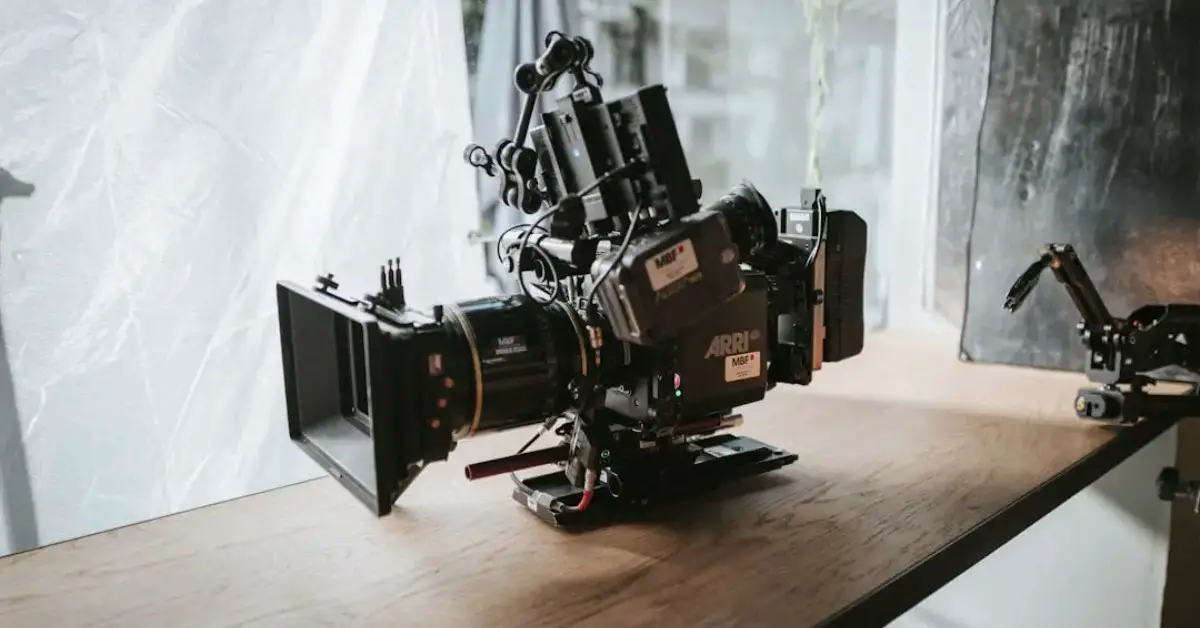Yes, you can play 4K video on a 1080P projector, but the output will be in 1080P resolution. While 1080P projectors cannot display true 4K quality, they can still play 4K videos with reduced clarity.
When connecting a 4K video source to a 1080P projector, the projector downscales the video to fit its resolution. This downscaled video may not be as sharp or detailed as it would be on a native 4K display, but it is still watchable.
Understanding the limitations of your equipment can help you make the most of your viewing experience. Let’s delve deeper into the intricacies of playing 4K content on a 1080P projector and explore the implications it may have on your viewing experience.
Table of Contents
The Quest For Clarity: 4k Videos On 1080p Projectors
The Quest for Clarity: 4K Videos on 1080P Projectors
Resolution Basics: 4k And 1080p Explained
Resolution refers to the number of pixels that make up an image. 4K resolution has a pixel count of 3840 x 2160, while 1080P has 1920 x 1080 pixels. The higher the pixel count, the clearer and more detailed the image appears.
Projector Capabilities: Understanding Native Resolutions
When it comes to projectors, understanding native resolutions is crucial. 1080P projectors are designed to display images at a maximum resolution of 1920 x 1080 pixels, while 4K projectors can handle the higher 3840 x 2160 resolution. Playing a 4K video on a 1080P projector may result in downscaling, potentially affecting the overall clarity and detail of the image.
Upscaling 101: Making The Most Of Your 1080p Projector
When it comes to getting the most out of your 1080P projector, understanding upscaling is crucial. Many people wonder if they can play 4K video on a 1080P projector. The good news is that upscaling technology allows you to do just that, and more. In this guide, we’ll delve into the basics of upscaling and how it can enhance your viewing experience with a 1080P projector.
How Upscaling Works
Upscaling refers to the process of taking a lower resolution video or image and increasing its pixel count to match the native resolution of the display device. In the case of a 1080P projector, upscaling allows it to display higher resolution content such as 4K videos with enhanced clarity and detail. This is achieved through sophisticated algorithms that interpolate additional pixels to fill in the gaps and create a sharper, more detailed image.
The Role Of Projector Technology In Upscaling
When it comes to upscaling on a 1080P projector, the underlying technology plays a significant role. Advanced projectors utilize cutting-edge upscaling processors that are designed to intelligently analyze and enhance lower resolution content. This ensures that the upscaled images maintain high levels of clarity, sharpness, and color accuracy, resulting in a visually stunning viewing experience.
The Compatibility Factor: Can 4k Content Play On 1080p?
Welcome to our exploration of the compatibility factor between 4K content and 1080P projectors. The burning question on everyone’s mind is: Can 4K video play on a 1080P projector? Let’s delve into the details and uncover the potential limitations and solutions, along with the video formats and projector support involved.
Video Formats And Projector Support
When it comes to playing 4K content on a 1080P projector, the video format becomes a crucial factor. Some projectors may support 4K content playback, albeit with downscaled resolution. However, the compatibility varies based on the specific projector model and its capabilities.
Moreover, the projector’s support for different video formats such as H.264, H.265, and VP9 can also influence the playback of 4K content. It’s essential to check the specifications of your projector to ensure it can handle the desired video format.
Potential Limitations And Solutions
One of the potential limitations when attempting to play 4K content on a 1080P projector is the resolution mismatch. This can result in downscaled playback, potentially compromising the visual quality. However, there are solutions to this issue, such as utilizing media players or devices that can downscale the 4K content to fit the 1080P resolution without sacrificing clarity.
Furthermore, the HDMI input of the projector plays a vital role in determining its compatibility with 4K content. Some projectors may have HDMI 1.4 ports, which support 4K at 30Hz, while others may feature HDMI 2.0 or higher for seamless 4K content playback.
Quality Considerations: Comparing Scaled And Native Resolutions
When it comes to playing 4K video on a 1080P projector, one of the main concerns is the quality of the image. This is where the concept of scaling comes into play. Scaling refers to the process of adjusting the resolution of an image or video to fit a display with a different resolution. In the case of playing 4K video on a 1080P projector, the 4K video needs to be scaled down to fit the projector’s 1080P resolution. However, this scaling process can have an impact on the quality of the image.
Visual Differences In Scaled Images
When a 4K video is scaled down to fit a 1080P projector, there will be a reduction in the number of pixels on the screen. This can result in a loss of detail and sharpness in the image. However, the extent of this loss will depend on the quality of the scaling algorithm used by the projector. Some projectors may use high-quality scaling algorithms that can minimize the loss of detail and sharpness, while others may not.
Factors Affecting Upscaled Video Quality
The quality of the scaling algorithm used by the projector is just one of the factors that can affect the quality of upscaled video. Other factors include the quality of the video source, the color accuracy of the projector, the brightness and contrast of the projector, and the viewing distance. For example, if the video source is of poor quality, then upscaling it to 1080P may result in an even lower quality image. Similarly, if the projector’s color accuracy is not good, then the upscaled image may appear washed out or have incorrect colors.
In conclusion, while it is possible to play 4K video on a 1080P projector, there are quality considerations to keep in mind. The quality of the scaling algorithm used by the projector and other factors can affect the quality of the upscaled video. However, if you have a high-quality 1080P projector and a good source of 4K video, then the upscaled image may still be of a very high quality.
Hardware Requirements: Enhancing Your 1080p Projector Experience
Enhance your 1080P projector experience by optimizing hardware requirements for better performance. While a 1080P projector can’t play 4K videos, upgrading to a 4K projector ensures crystal-clear visuals for an immersive viewing experience. Unlock the full potential of your projector setup with the right hardware choices.
If you have a 1080P projector, you might be wondering if it’s possible to play 4K videos on it. The answer is yes, but you’ll need some additional hardware to enhance your viewing experience. In this post, we’ll discuss the hardware requirements and settings you need to get the best playback quality on your 1080P projector.External Upscaling Devices
To play 4K videos on a 1080P projector, you’ll need an external upscaling device. These devices work by taking the 4K signal and converting it into a 1080P signal that your projector can display. There are many different upscaling devices available, ranging from budget-friendly options to high-end models. Some popular options include the Sony UBP-X700, the Oppo UDP-203, and the Panasonic DP-UB9000.Projector Settings For Optimal Playback
In addition to an upscaling device, you’ll also need to adjust your projector’s settings to get the best playback quality. Here are some tips to help you optimize your projector’s settings:- Set your projector to its highest resolution setting.
- Adjust the aspect ratio to match the video you’re playing.
- Turn off any image processing features, such as noise reduction or sharpening.
- Adjust the color settings to your liking.
Content Creation And Adaptation: Preparing 4k Videos For 1080p Display
When it comes to content creation and adaptation for 4K videos on a 1080P display, it’s essential to consider the software solutions for pre-upscaling and optimizing videos for projection. With the increasing popularity of 4K content, many individuals wonder if they can play 4K videos on a 1080P projector. Let’s delve into the strategies for preparing 4K videos for 1080P display, specifically focusing on software solutions for pre-upscaling and optimizing videos for projection.
Software Solutions For Pre-upscaling
Before projecting 4K videos on a 1080P display, it’s important to utilize software solutions that enable pre-upscaling. This process involves enhancing the resolution of the 4K video to match the capabilities of the 1080P projector. There are various software options available, such as Adobe Premiere Pro, Final Cut Pro, and HandBrake, which offer pre-upscaling features. These tools allow users to adjust the resolution, bitrate, and encoding settings to optimize the video for projection on a 1080P display.
Optimizing Videos For Projection
Optimizing 4K videos for projection on a 1080P display involves several crucial steps. Firstly, it’s essential to adjust the aspect ratio and frame rate to ensure compatibility with the 1080P projector. Additionally, utilizing video editing software to downscale the resolution while preserving the quality is imperative. Furthermore, considering the use of video encoding formats such as H.264 or H.265 can significantly enhance the projection quality.
Practical Tips: Maximizing Your Viewing Pleasure
Setting The Right Environment
When aiming to play 4K video on a 1080P projector, creating the right environment is crucial. Dimming the lights can significantly enhance the viewing experience, reducing the impact of the lower resolution on your projector. Adjusting the projector screen to a smaller size within the 1080P frame can also improve the image quality, making it appear sharper and more vibrant.
Maintaining Projector Health For Better Upscaling
Regularly cleaning the projector’s lens and ensuring proper ventilation can help maintain its health, leading to better upscaling performance. Keeping the projector cool and free from dust can reduce the risk of overheating and maintain optimal image quality when upscaling 4K content to 1080P.
Future-proofing Your Setup: When To Invest In A 4k Projector
Future-Proofing Your Setup: When to Invest in a 4K Projector
Evaluating The Cost-benefit Ratio
Investing in a 4K projector involves evaluating the cost-benefit ratio. Consider the long-term value it brings to your entertainment setup. While the initial investment may be higher, the enhanced viewing experience and future-proofing benefits make it a worthwhile consideration.
Trends In Projector Technology
Keeping an eye on the trends in projector technology is crucial. As 4K content becomes more prevalent, the demand for 4K projectors continues to rise. Staying informed about the advancements in projection technology will help you make an informed decision about when to upgrade to a 4K projector.
Frequently Asked Questions
What Happens If You Play A 4k Video On A 1080p Screen?
Playing a 4K video on a 1080p screen may result in reduced quality and clarity due to resolution mismatch.
Can You Use A 4k Player On A 1080p Tv?
Yes, you can use a 4K player on a 1080p TV, but the video will display in 1080p resolution.
Is There A Big Difference Between 1080p And 4k Projector?
The big difference between a 1080p and 4K projector is the resolution clarity. 4K offers four times more pixels, resulting in sharper and more detailed images.
Can I Watch 4k Video On 1080p Phone?
No, 4K videos won’t display in 4K on a 1080p phone due to screen limitations.
Conclusion
Ultimately, playing 4K video on a 1080P projector is possible but with limitations. While the quality may be compromised, the experience can still be enjoyable. Consider the compatibility, settings adjustment, and your expectations to make the most of this setup.
Experiment and see what works best for you!

